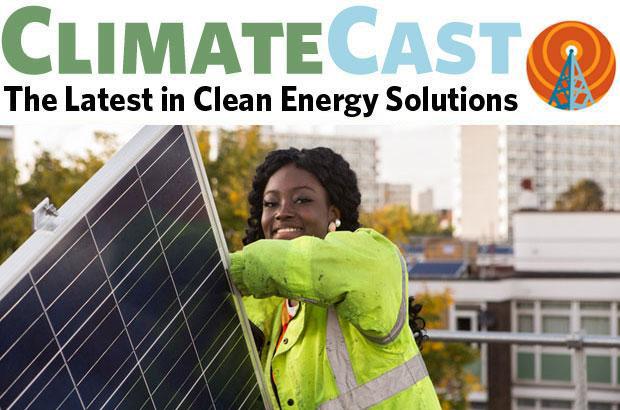Good clean energy coming? November will determine a lot
A new study quantifies the effectiveness of Washington’s Climate Commitment Act (CCA), noting that it is on track to catalyze more than $9.1 billion in economic output and create more than 45,000 jobs over eight years. The report, released by Greenline Insights and the Clean and Prosperous Institute (disclosure: report funded in part by Climate Solutions), details how a wide array of projects funded by the CCA are providing economic and health benefits in various sectors statewide, including clean transportation, forest preservation and energy efficiency. All of these projects are threatened by Initiative 2117, on the November ballot, which would repeal the CCA.
The Clean and Prosperous Institute has been highlighting projects statewide that are jeopardized by that “risk of repeal;” the group recently launched an interactive map tool showing where the state is spending CCA funds to reduce climate pollution, improve public health, protect the environment, and grow Washington’s clean energy economy. The map also ranks each project by “risk level,” showing which ones are most likely to be eliminated or reduced unless voters reject I-2117.
Clean energy infrastructure, manufacturing, communities, and the need to connect them
Clean energy economic development is on fire (not literally!) in eastern Washington, where Climate Solutions’ Gregg Small and Leah Missik recently toured new energy innovation projects, including the massive South Landing Eco-District development in Spokane, and clean energy research facilities at the Pacific Northwest National Lab. Many of these new investments, he writes, “were galvanized by recent state and federal public policies” including the CCA and the federal Inflation Reduction Act.
Puget Sound Energy has announced two new projects that will also help Washington meet the carbon-reduction goals set by the Clean Energy Transformation Act. A new utility-scale solar facility in Eastern Washington is projected to be able to power 30,000 homes. Additionally, a planned battery storage facility near Sumner, WA will help store and distribute renewable power region-wide. Meanwhile, a proposed battery storage project in Sedro-Woolley, WA is being met with some local pushback. Some residents’ concerns stem from fears that battery arrays could catch fire or leach chemicals into the nearby river—but modern battery storage systems and updated fire codes makes such risks increasingly rare.
There’s no question that community input is essential when planning and siting new industrial development, including clean energy projects—not least because of a history of environmental injustices systematically harming low-income areas and communities of color. However, delays produced by bad information can hold back sorely needed clean energy development. The long-term success for new energy infrastructure and clean energy manufacturing projects will also depend on a dramatic expansion of transmission capacity for clean electricity, a challenge that faces state and federal policy hurdles.
Climate Week Round-up
Climate Week NYC, the world’s largest climate-focused conference and event series, wrapped on Friday. Organized by the London-based NGO Climate Group, thousands of climate activists, elected officials, scientists, and entrepreneurs gathered in New York and virtually for panel discussions, symposiums, and more on climate crisis issues. With growing public awareness about the climate crisis amidst a daunting backdrop of stubbornly high global emissions, record-breaking temperatures, horrific impacts from the latest extreme storm and a climate change denier running for the American presidency, this year’s Climate Week drew coverage from NBC, Newsweek, Forbes, and USA Today.
Climate justice played a prominent role. Strikes in 50 countries were timed to coincide with the event, and several protests were organized against oil companies whose representatives attended Climate Week events. Columbia University hosted a one-day Climate Justice Summit (just don’t dare protest on their campus), and several other seminars focused on enacting real inclusion and human security in a warming world.
What we’re listening to
This month we’re tuning in to “How to stop America’s outdated grid holding back the deployment of clean energy” from The Energy Gang. Ed Crooks hosts this podcast with guest speakers Amy Myers-Jaffe of NYU and Christina Hayes, Executive Director of Americans for a Clean Energy Grid. They discuss the challenges and current opportunities for cleaning up the grid at the state and national level.
The Energy Gang also recorded a live episode during this year’s Climate Week NYC, interviewing Marissa Beatty (Turnover Labs), Apoorv Sinha (Carbon Upcycling Technologies), and Dan Goldman (Clean Energy Ventures). They explored several clean tech topics from their paths from startup to success, the role of venture capital funding, and advice they’d give others trying to enter the sector.
Source link
Jonathan Lawson www.climatesolutions.org

